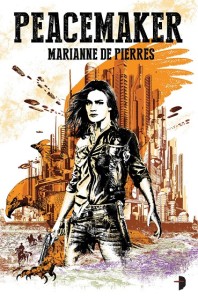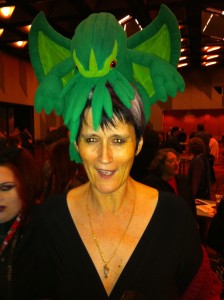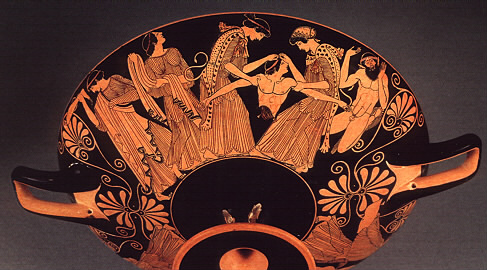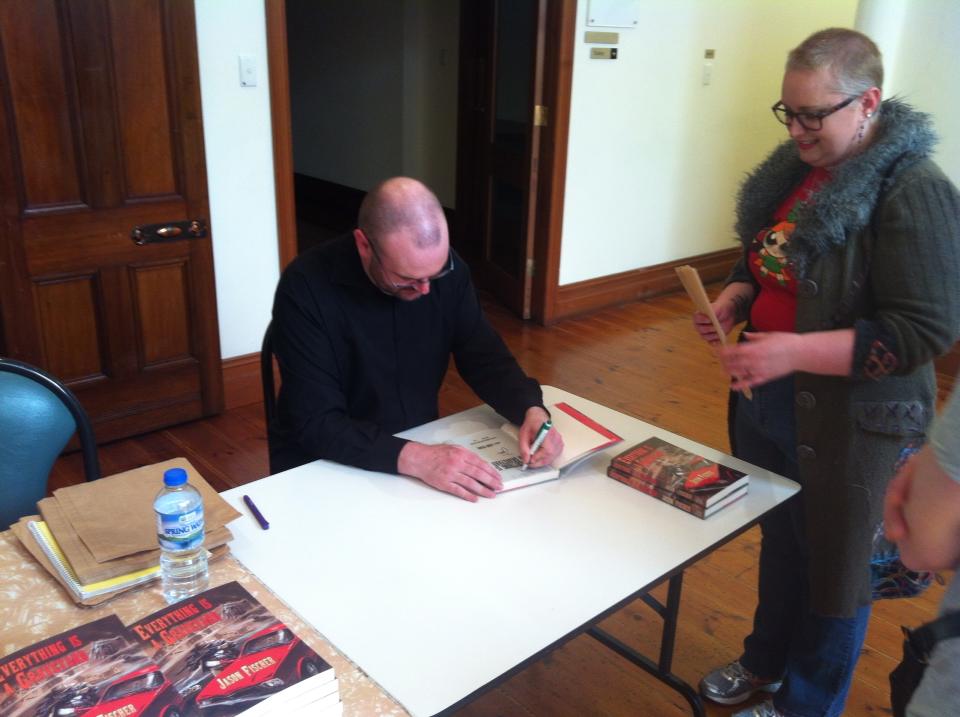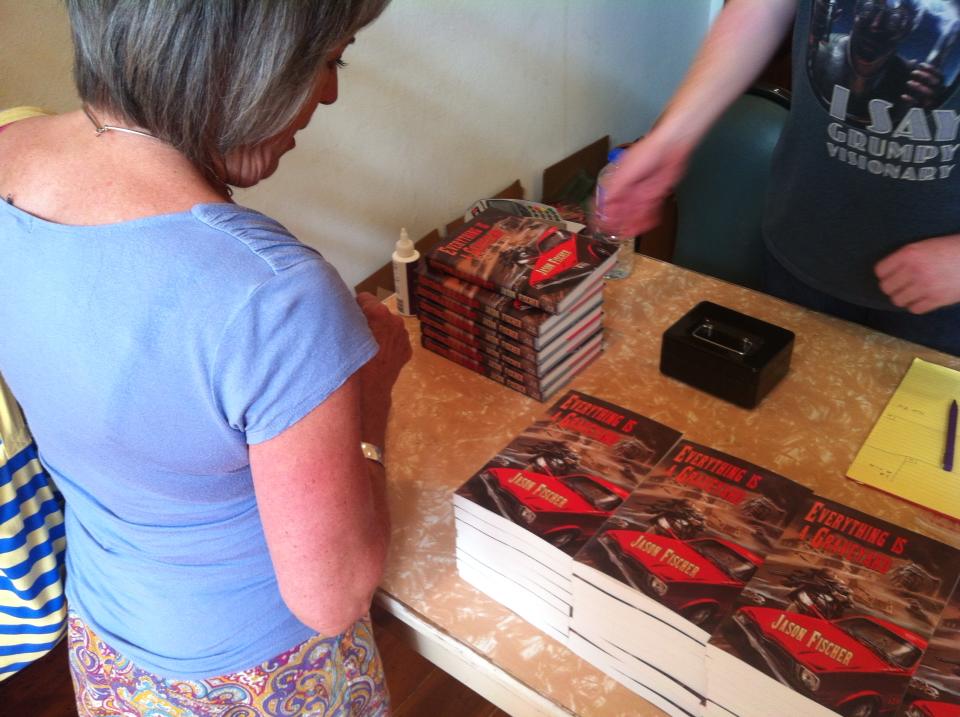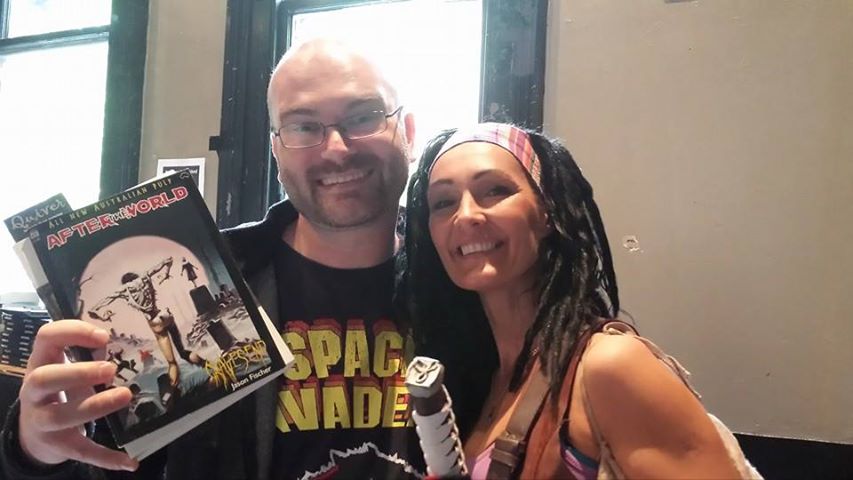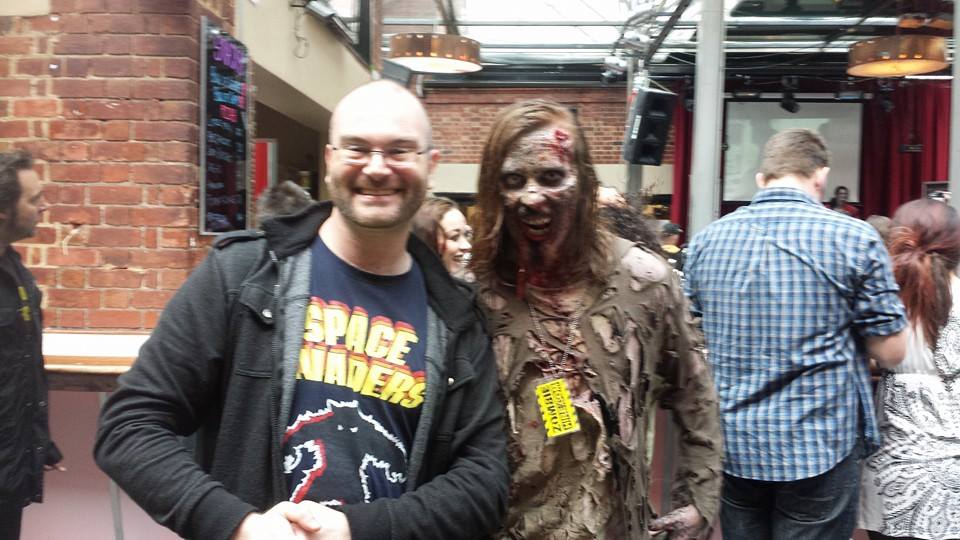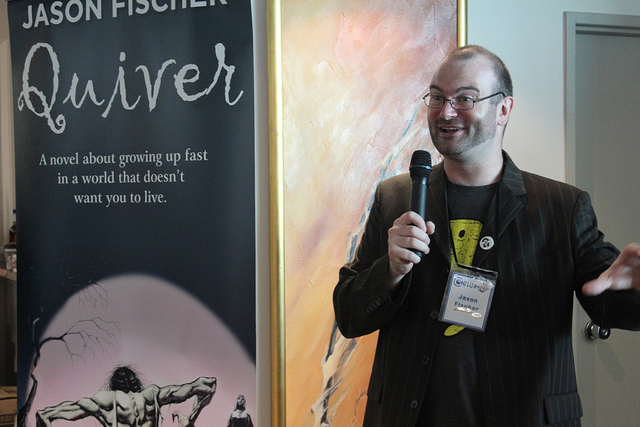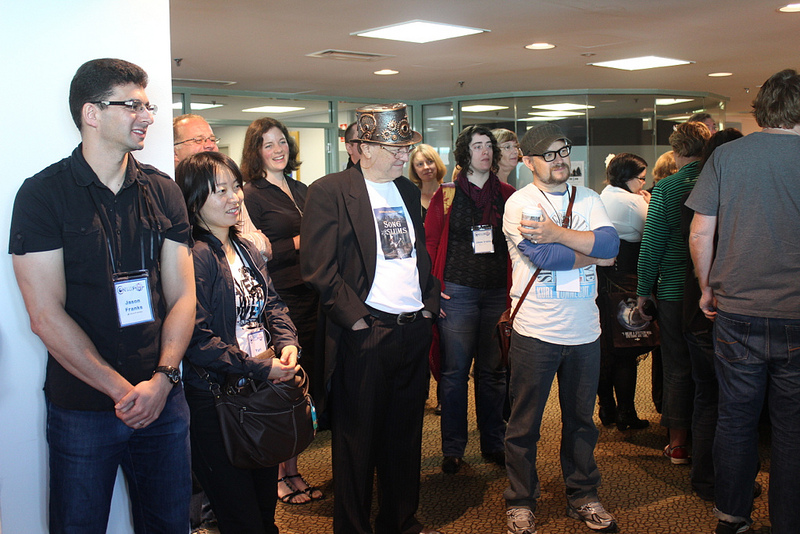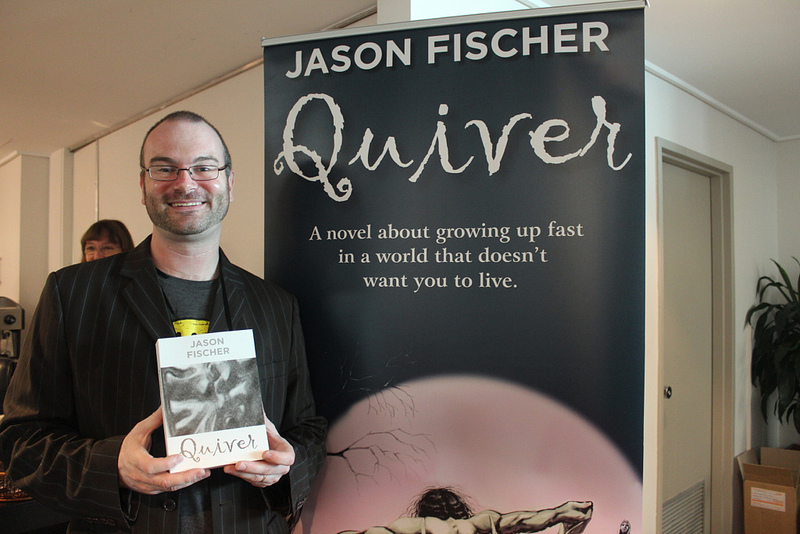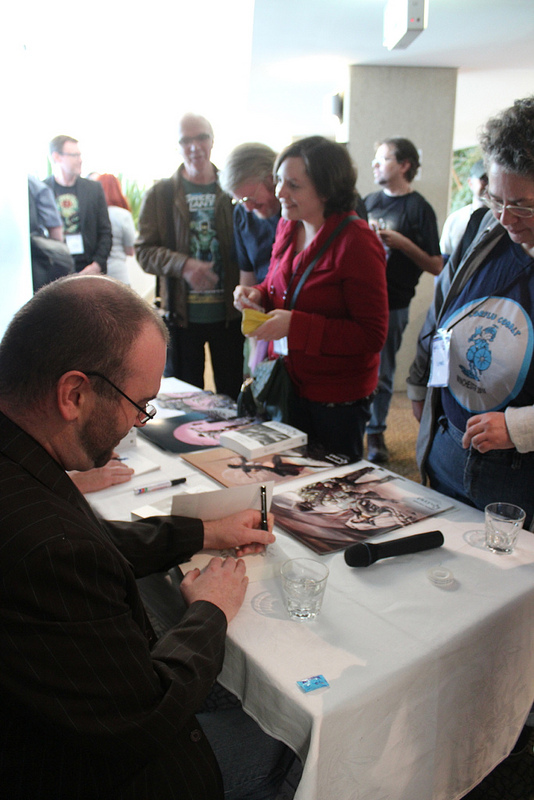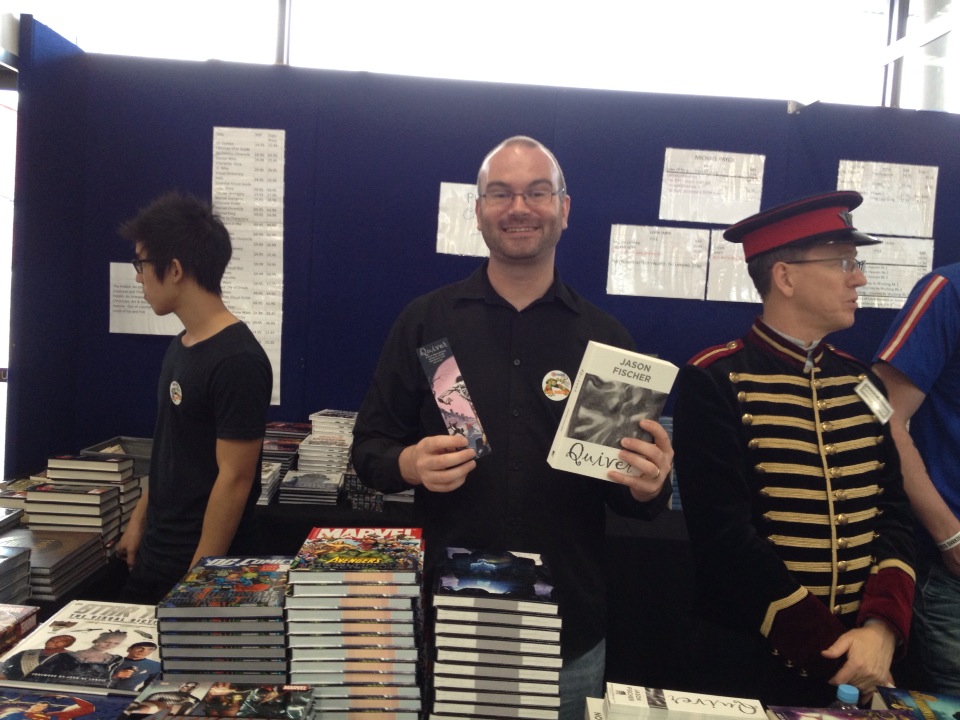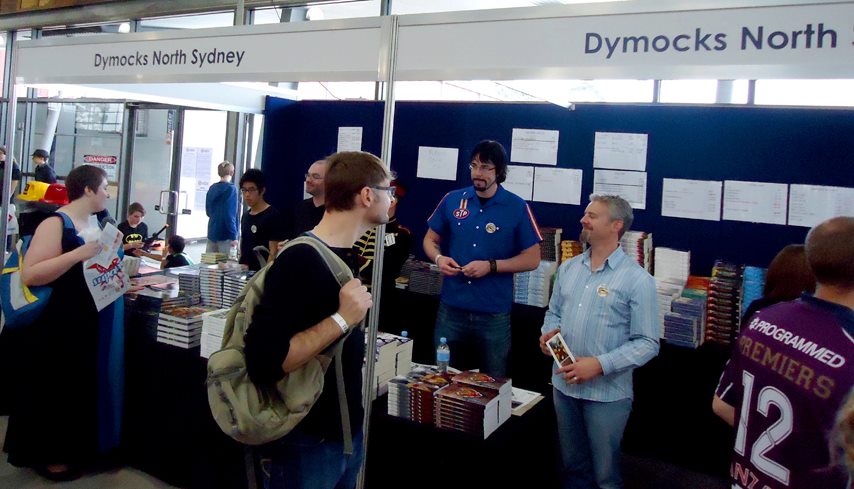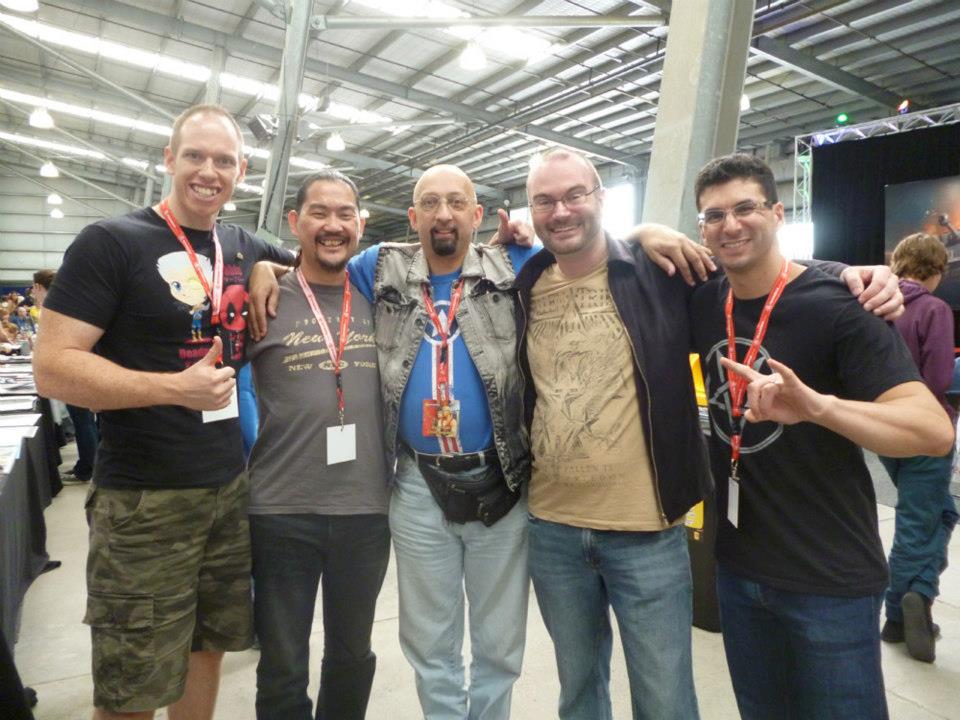In the near future, I’m entertaining the thought of self-publishing some odds and ends as an e-book. One project I enjoyed being part of a few years ago was the Daily Cabal, a mad exercise in masochism where our group produced a new piece of flash fiction every day. In practice our individual contributions were a new entry every week or fortnight.
And it was HARD. I think there’s a truism somewhere that shorter writings are more difficult than longer. I can blurt whole chapters of dribble out of my brain, but encapsulating an entire entertaining idea in 400 words or less? Bloody difficult, that.
Anyway, here’s one of my favourite short-short stories for your enjoyment. The working title for this kinda-sorta gonna happen collection is “Day One of the Fog”, I’ll keep you posted here on how that’s going.
WHAT COMFORT THERE IS
By Jason Fischer.
Old Syd disproved the rumour with one mad dash; it ended in a bloody game of cat and mouse, those bastard machines chasing him from street to street, finally cornering him in a neatly presented cul-de-sac. They toyed with him for hours before his screams stopped. Wet weather does nothing to dull their sensors.
So yes, we are in the end times. Our species fails, huddled indoors, dreading each sound. My frightened cadre are hiding in an opulent mini-mansion, though we haven’t eaten properly in days. An old suburb lies just within walking distance, and it’s a race between us and humanity’s killers. We do our best to scavenge from the old places, even as the suburbs are recycled and turned into neat streets, freshly painted town-houses, acres of immaculate lawns.
It seems ironic that we are being wiped out by a cliché. An uprising of artificial machines, sure. But these are not the instruments of war, rather those of peace. Construction crews, serving a purpose that our laziness corrupted, simplified. Build. Gather. Build more.
What seemed a great solution to the housing crisis turned into unguided madness. Materials gathered from existing structures. Whole forests razed for lumber. When the builders began to destroy suburbs and cities holus bolus, these mad machines were destroyed. This achieved little, given the machines’ instructions to “generate sufficient crews to achieve the task”, and those left built themselves quicker than we could take them out. They looked upon our actions as a genocide, and the best we could do simply raised their madness to apocalyptic levels.
With intelligence came survival traits, so they’ve done their level best to grind us out of existence. But still, they continue the task, and one by one we die surrounded by perfectly designed streets, neat commercial hubs, empty warehouses and marinas.
Our enemy is simple, but amazingly efficient. They prowl the old highways, pouncing upon those cars which brave our dead nation’s asphalt veins. Nowhere to go anyway. Forklifts and dozers lurk in each street, blood running from their tines, while the yellow necks of diggers and cranes lurk overhead, watching for us. Waiting patiently for runners.
Our final creations have outdone us, yet in our twilight hour we are as gods. For our killers are truly alive, and we have created this life. I have seen them mourning the machines which our partisans have destroyed, metal buckets clanking together sorrowfully as the construction crews give comfort to each other. They attend their dead, dismantling them reverently, engines and sirens roaring into the night.
Whenever they hold a funeral, we know it’s time to leave the neighbourhood. They get really vicious afterwards, which tells me they’ve discovered revenge and are more human than we.
